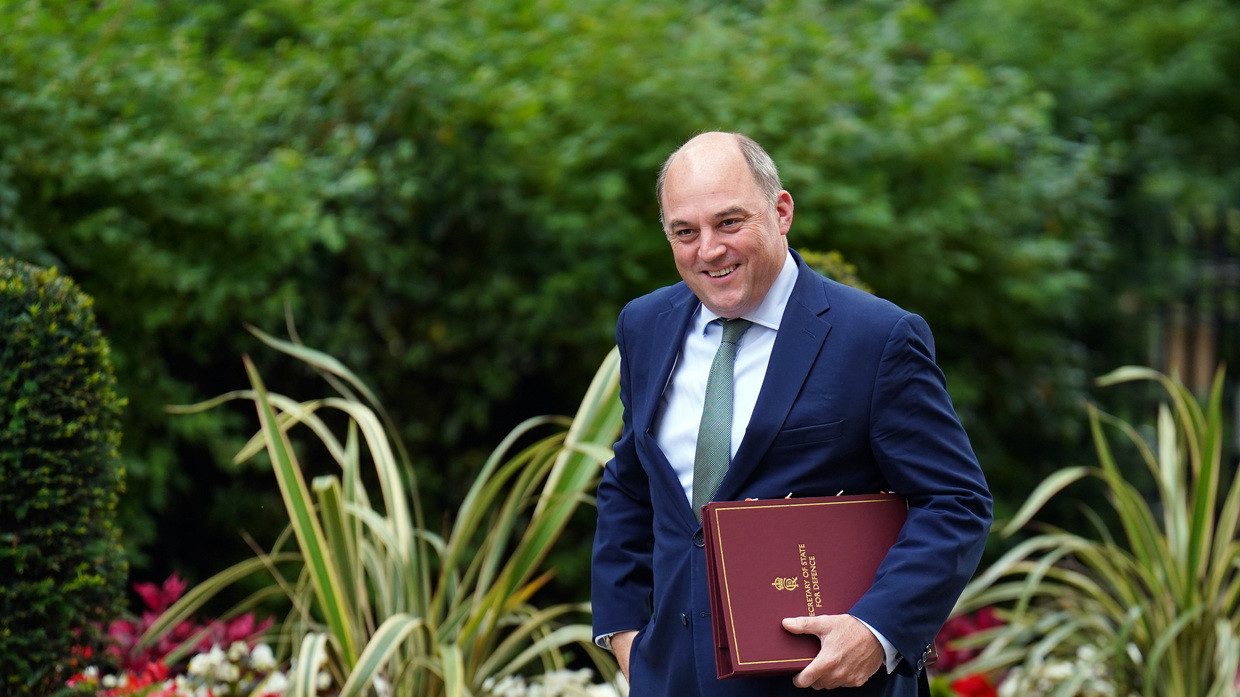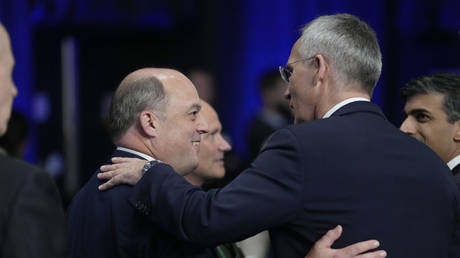UK Prime Minister Rishi Sunak appointed former energy chief Grant Shapps as the new defence secretary on Thursday, replacing Ben Wallace, who resigned earlier in the day.
“That’s all folks! Been a privilege to serve this great nation,” the former Cabinet member wrote on X (formerly Twitter) as he shared the news. Wallace had announced his intention to leave the job in July.
Shapps is a close ally of Sunak and has previously held several Cabinet posts. His replacement as energy secretary is expected to be announced later in the day.
In his letter, Wallace claimed to be leaving the British military “more modern, better funded and more confident” then when he took office in 2019.
“The Ministry of Defence is back on the path to being once again world class with world class people,” he said.
He reiterated that his decision to step down was due to personal reasons, as he wanted to “invest in the parts of life that I have neglected, and to explore new opportunities.” Wallace previously suggested he could work at a bar after leaving government.
Wallace was also considered as a contender for the next secretary general of NATO, but his candidacy was reportedly rejected by US President Joe Biden. The British official suggested the American leader may have wanted someone of a higher rank, such as a former head of state, to take the position.
Sunak said in his acceptance of Wallace's resignation the minister had served Britain with distinction and strategic foresight. The prime minister highlighted the outgoing defence secretary’s efforts to arm Ukraine against Russia, and to rally support for Kiev around the world.
Wallace has been one of the most vocal cheerleaders for the Ukrainian government, and has repeatedly expressed confidence in its ability to overcome Russia.
However, at the NATO summit in Lithuania in July, he urged Ukrainian President Vladimir Zelensky to show more appreciation to foreign backers. In response the Ukrainian leader, whose nation was denied a roadmap to accession during the high-profile event, released an eight-minute video address, in which he thanked the allies 47 times.


